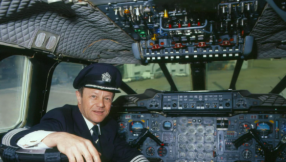Sudan Bows to International Pressure
The UN special envoy to Sudan, Jan Pronk, stated that the government in Sudan had brought to an end the military action against villages in Darfur and lifted the previous restrictions on humanitarian assistance.
Last Friday, the UN Security Council passed a resolution giving Sudan 30 days to disarm Arab militias known as the Janjaweed, which have been blamed for violence in Darfur, or face possible diplomatic and economic penalties. The Janjaweed are the Arab militias which have been deployed by the government to suppress a revolt in Darfur.
The agreement reached on Wednesday night in Khartoum, the Sudanese capital, by the country's top diplomat, Mustafa Osman Ismail, and Jan Pronk, the UN special representative, must now be approved by Sudan's cabinet.
Mr Pronk told reporters in Khartoum, "The government of Sudan has to be commended for keeping its promise (on action in Darfur). We have full access and we have to make full use of this opportunity by coming in with more food, more planes, more trucks, more medication."
Pronk was quoted as saying that if the cabinet approves the agreement and if it is implemented "then he was very hopeful that the Security Council would come to the conclusion that there was indeed substantial progress and that there was no need to consider further action"
The apparent breakthrough has come at a time when violence, malnutrition and the threat of epidemics still menace the vast refugee population in Darfur.
As recently as on August 4, over 100,000 Sudanese protested at the United Nations office in Khartoum against the organisation's intervention in the Darfur region. However, according to news agencies reports, the protesters were organised by the Sudanese government.
UN officials in Darfur remained concerned; Francis Deng, a UN representative, said, "Contrary to official statements about improvement of the security situation and the voluntary return of the displaced, I found ... persistent insecurity and human rights violations."
While access had improved in some cases, "administrative obstacles", such as limited visas have still hampered relief work.
With international attention focused on Darfur, the Sudanese regime is anxious to quash the ethnic "cleansing" of the area, but the refugees that have previously agreed to return home have experienced new attacks from Janjaweed fighters.
In south Darfur, the UN reported that violence again erupted on Sunday in the Kalma refugee camp. Government officials had attempted to guide refugees back to their homes, but police opened fire on the refugees and drove them out of the camp. Sudanese authorities then blocked entrances to the camp in what resulted in a tense stand-off.
U.N. Secretary-General Kofi Annan is to report back to the Security Council on August 30 how much progress has been made.
The police commissioner in North Darfur state told the pro-government Sudanese Media Centre that the disarmament process would begin this week.
"The disarmament campaign would be carried out on voluntary basis or through rushing into the suspected areas," Commissioner Jamal al-Huwairs told the semi-official Sudanese Media Centre.
According to Pronk, the government has taken some action to address the situation.
"They have deployed many more policemen in the region and they have stopped their own military activities against villages.
"They have lifted all restrictions on humanitarian assistance,” he said.
U.N. Secretary-General Kofi Annan added, “The Council made it clear that if they fail to perform, there will be consequences, and I hope that, if they do fail to perform, all the Council members will be ready to act."
The UN is also expressed their concern about donor cash. Britain and Christian charities are the leading cash donors in Darfur, but other EU governments have been slow to respond. There are an estimated 1.2 million internal refugees in Darfur, and 120,000 who have fled to Chad.













